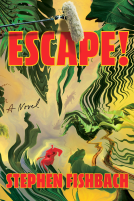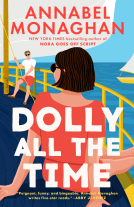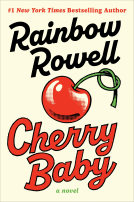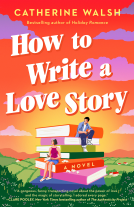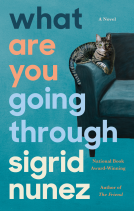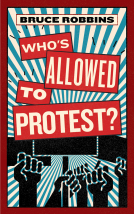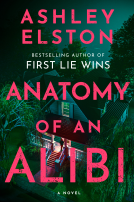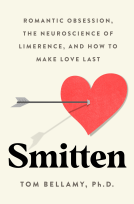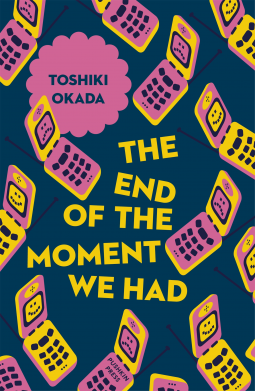
The End of the Moment We Had
by Toshiki Okada
This title was previously available on NetGalley and is now archived.
Send NetGalley books directly to your Kindle or Kindle app
1
To read on a Kindle or Kindle app, please add kindle@netgalley.com as an approved email address to receive files in your Amazon account. Click here for step-by-step instructions.
2
Also find your Kindle email address within your Amazon account, and enter it here.
Pub Date Sep 04 2018 | Archive Date Apr 09 2018
Talking about this book? Use #TheEndOfTheMomentWeHad #NetGalley. More hashtag tips!
Description
On the eve of the Iraq War, a man and a woman meet in a nightclub in Tokyo. They go to a love hotel, and spend the next five days in a torrid affair. Written in a stream of consciousness, with the reader's perceptions shifting and melting into one another, what is remarkable in this story is not what happens, but the ability of the writer to enter the minds and memories of the protagonists.
In the second story, a woman living in a damp flat obsesses on the filthy state of her dwelling. She remains in bed for the duration of the narrative, but the drama and tension of her inner life - spiralling further and further into her memories and anxieties - keep the reader engrossed to the very end.
The End of the Moment We Had demonstrates the fluidity and richness of this extraordinarily gifted writer's language and ideas.
Advance Praise
'Nothing short of superb... This book gives me hope for the future of Japanese literature... there is power in the flow of this writer's prose' - Kenzaburo Oe, winner of the Nobel Prize in Literature
'Nothing short of superb... This book gives me hope for the future of Japanese literature... there is power in the flow of this writer's prose' - Kenzaburo Oe, winner of the Nobel Prize in Literature
Available Editions
| EDITION | Other Format |
| ISBN | 9781782274162 |
| PRICE | $13.95 (USD) |
| PAGES | 160 |
Average rating from 14 members
Featured Reviews
Book Review: The End of the Moment We Had by Toshiki Okada
A quick read composed of two novellas, perhaps along the lines of Haruki Murakami's "After Dark", fairly well-delivered.
Though definitely not everyone's cup of tea, it candidly touches on aspects uniquely Japanese.
The herd mentality. Play golf, vacation in Hawaii, pay exorbitant prices for brand names, do because other do. Take the train and be boisterous, go clubbing (for whatever purpose, i.e. protest "Bush's war in Iraq"), although unaffordable and everyone's on Dutch treat. There's no such thing as "it's my shout!" in these Japanese scenarios unless the tab's on business.
Love hotels, abundant in Japan mainly due to the lack of privacy in living quarters, usually a "LDK", a small room serving as living, dining, kitchen and futon bedroom at night. No such thing as "your place or mine" in Japan. So a month's rent for a couple of nights stay at a love hotel which one can barely afford is the norm.
"Arbaito" the prevalence of temporary, part-time labor renewed periodically ostensibly to cut on employee benefits, and how this impacts in the novellas, the tight cash situation of the young man in the first story and of the husband and wife in the second one. The young lady in the first story may be presumed as slightly better salaried as an office girl of some sort.
And finally, the "Hikikomori" syndrome in Japan (Japanese: ひきこもり or 引き籠り, lit. "pulling inward, being confined", i.e., "acute social withdrawal") described as reclusive adolescents or adults who withdraw from social life, often seeking extreme degrees of isolation and confinement afflicting the wife in the second story.
Perhaps the writer endeavored to portray what goes through the mental state of a hikikomori in early, pre-hermetic stages.
This review is based on an ARC (Advance Reading Copy), with many thanks to NetGalley, Pushkin Press and Toshiki Okada for the privilege.
 Aida A, Reviewer
Aida A, Reviewer
I love discovering new to me authors and I was glad when I read this very well written and well told story. I love discovering a new author's voice and this author did not disappoint. I was engrossed and entertained by both stories so this should definitely be picked up and savored. Looking forward to reading more by this author. Happy reading!
Both of the Novellas are quick reads. The first one is a about a couple spending four days in a love hotel on the eve of the Iraq War. They know they will just have these four days and together and will never see each other again. The prose switches viewpoints and rambles just like conversation in between having sex. I enjoyed the ending. The second story takes place during one day as a wife reflects on her life and marriage. I did not enjoy this story as much as since I did not care for the wife. Both stories concern solitude and isolation. I liked the first story better than the second one. The writing is very good and the author has a gift for language. Enjoy



